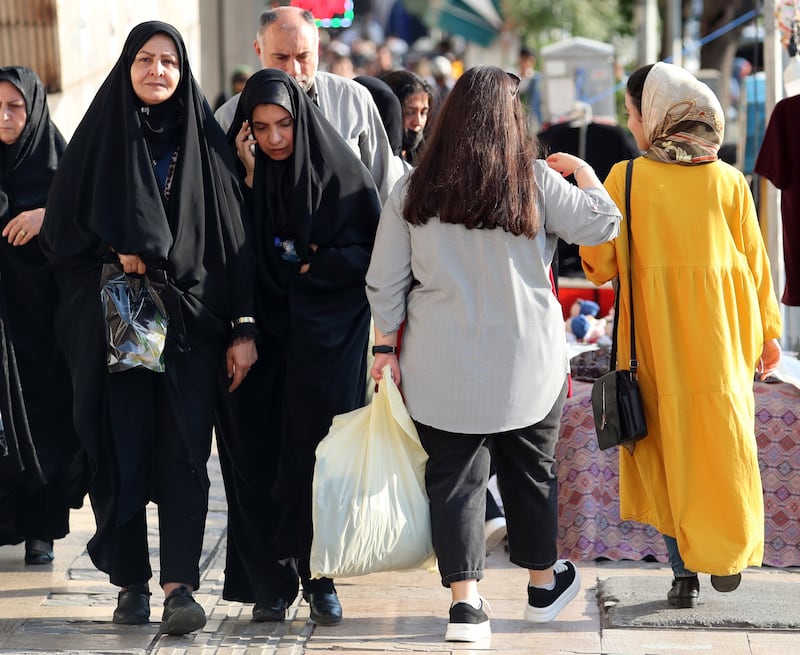UN experts on Friday expressed grave concern over a new draft law in Iran that orders new penalties for women not wearing hijab in public.
“The draft law could be described as a form of gender apartheid,” the experts said.
“The authorities appear to be governing through systemic discrimination with the intention of suppressing women and girls into total submission.”
Since the revolution of 1979 that ousted a secular monarchy, women in Iran have had to cover their hair in public, with offenders facing fines or prison terms of up to two months.
The revolution was initially supported by a broad range of groups across Iran, but soon came to be dominated by ultraconservative Shiite clerics.
A growing number of women have been defying the law and appearing bareheaded, especially since nationwide protests sparked by the death in police custody last year of 22-year-old Mahsa Amini, who was detained for wearing her headscarf “improperly”.
Iran's conservatives, who dominate the country's parliament and leadership, have passionately defended the dress code.
In May, the judiciary and the government proposed a “Support for the Culture of Hijab and Chastity” bill, calling for far stiffer penalties for non-compliance.
It raises fines and includes other penalties such as the temporary confiscation of a woman's vehicle.
The experts stressed that the proposed bill and existing de facto restrictions are inherently discriminatory and may amount to gender persecution.
“The draft law imposes severe punishments on women and girls for non-compliance which may lead to its violent enforcement,” the experts said.
“The bill also violates fundamental rights, including the right to take part in cultural life, the prohibition of gender discrimination, freedom of opinion and expression, the right to peaceful protest, and the right to access social, educational and health services, and freedom of movement.”
The use of culture by the Iranian government as a tool to restrict the rights of women and girls is misplaced, the experts warned.
“Culture is formed and evolves with the participation of all,” they said.
The experts condemned the use of terms like “nudity” and “lack of chastity” in the bill, which they said sought to authorise public institutions to deny essential services and opportunities to women and girls without a headscarf.
“The weaponisation of 'public morals' to deny women and girls their freedom of expression is deeply disempowering and will entrench and expand gender discrimination and marginalisation,” they said, warning of “wider negative consequences for children and society as a whole”.
“We urge authorities to reconsider the compulsory hijab legislation in compliance with international human rights law, and to ensure the full enjoyment of human rights for all women and girls in Iran,” the experts said.







